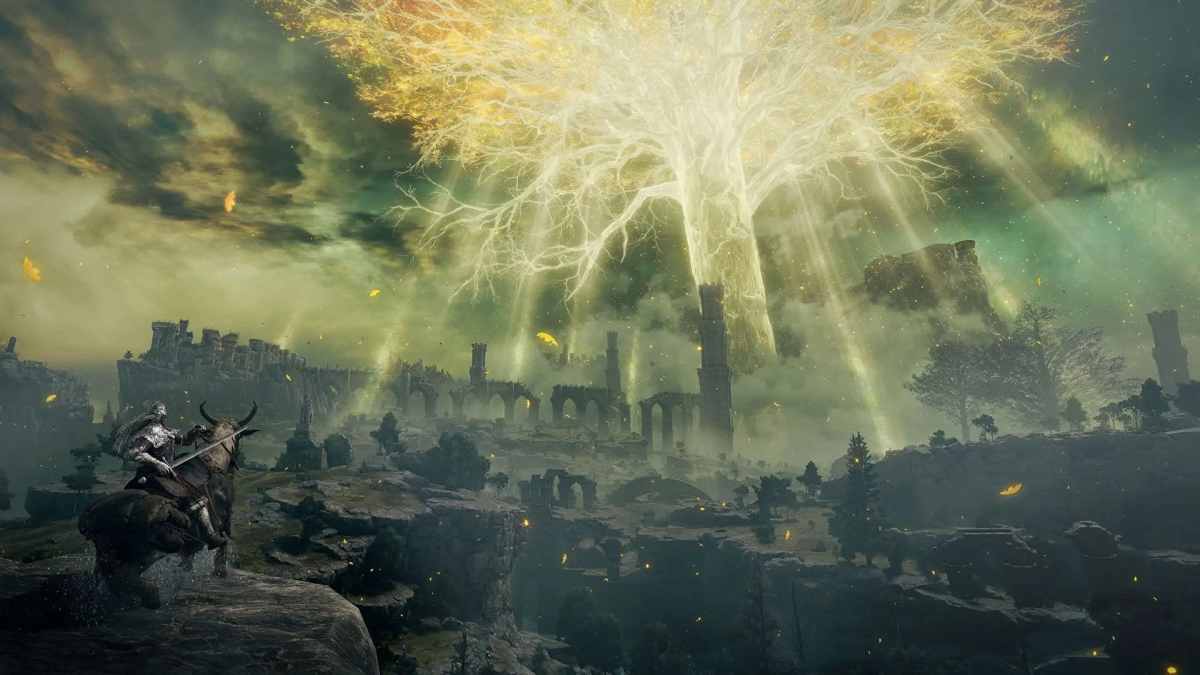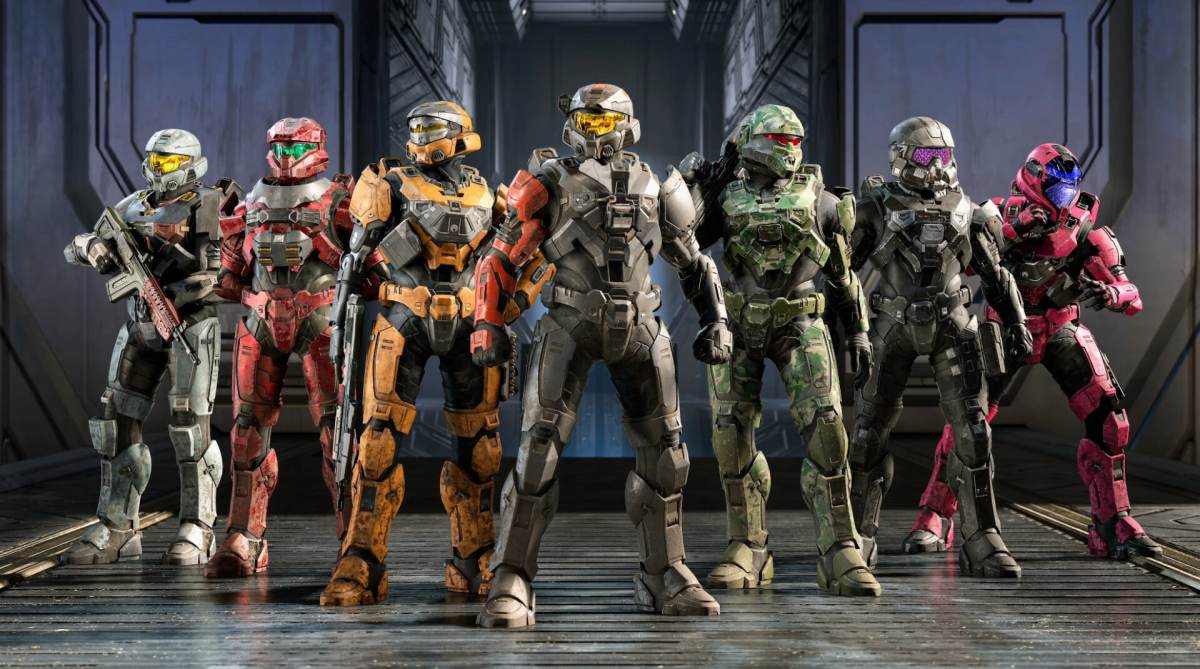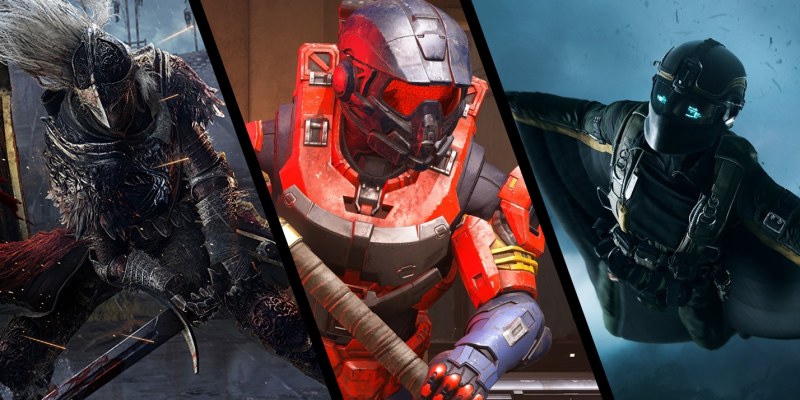There have been a lot of fascinating stories and trends coming out of E3 2021. The indie scene is looking stronger than ever, with projects like Sable, Death’s Door, Somerville, Replaced, and Immortality just a few of the dozens of incredible-looking games from smaller teams. Despite having a rocky showcase, Koch Media’s Prime Matter label looks to be one of several smaller publishing arms carrying the torch for AA games. And Xbox has laid out a roadmap of its next five years, with all of those acquisitions finally coming to fruition in the form of a new Xbox Game Studios game hitting Game Pass every single quarter. But one of my chief takeaways from E3 2021 was, despite the new consoles launching seven months ago, cross-generational games are here to stay for the foreseeable future.
Massive games set to release this fall like Halo Infinite, Far Cry 6, Horizon Forbidden West, Marvel’s Guardians of the Galaxy, Psychonauts 2, Battlefield 2042, Forza Horizon 5, and Dying Light 2 are all going to be hitting the new consoles, as well as their respective last-gen counterparts. And while seeing ample cross-gen games in the first year of a new console isn’t anything new, this trend doesn’t just pertain to games in the near future.
2022 titles like FromSoftware’s Elden Ring, God of War 2, Gotham Knights, Hogwarts Legacy, and Stranger of Paradise: Final Fantasy Origin are all set for similar cross-gen releases. In comparison, the second full year of the last generation of consoles was 2015, with major games like Bloodborne, The Witcher 3, Call of Duty: Black Ops 3, Star Wars Battlefront, Fallout 4, and Mortal Kombat X all being new-gen exclusives to Xbox One, PlayStation 4, and PC. One of the few major 2015 games to straddle the generational line was Metal Gear Solid V: The Phantom Pain, and the less said about the old-gen versions of that, the better.

And in a strange move, the PC and PlayStation 5-exclusive Godfall that hit last November is now receiving a PS4 port. We’ve seen plenty of last-gen games receive PS5 and Xbox Series X | S upgrades, like Control, Star Wars Jedi: Fallen Order, and the upcoming Death Stranding: Director’s Cut. But I can’t recall ever seeing a game release for a console and then subsequently be ported backwards for an older generation.
Obviously that’s not to say that we won’t be getting any games that only work on the new hardware. PlayStation 5 launched with Demon’s Souls and Astro’s Playroom and added Returnal and Ratchet and Clank: Rift Apart this year. Similarly, we saw The Medium launch only on PC and Xbox Series X | S in January, and Microsoft Flight Simulator will be growing from PC to Series X | S next month. But by and large, it seems the full shift to the new consoles won’t be happening until well into 2022 at the very earliest.
Most of the games at E3 2021 that were confirmed to be new-gen exclusives are quite a ways away. Stalker 2: Heart of Chernobyl has an April 28, 2022 date. Starfield isn’t set to release until Nov. 11, 2022. Then you have games with nebulous 2022 dates like Ubisoft’s Avatar: Frontiers of Pandora, Arkane’s Redfall, A Plague Tale: Requiem, and Rocksteady’s Suicide Squad: Kill the Justice League. But honestly, any combination of these games could see delays — perhaps even into 2023.
Just over a month ago, I reflected on when the right time would be for Xbox and PlayStation to officially sunset their old consoles to focus on the new generation. I posited that 2022 would be that year, given everything we’d seen from previous hardware transitions, Sony’s insistence that it “believes in generations,” and the sheer fact that Xbox One and PS4 are now in their ninth year of existence, which seems like a lifetime in the world of technology.

But lo and behold, in just a few short weeks, I feel like I drastically underestimated the amount of time it would take before this generational transition is complete. At the beginning of June, Hermen Hulst, the head of PlayStation Studios, said, “Where it makes sense to develop a title for both PS4 and PS5 — for Horizon Forbidden West, the next God of War, GT7 — we’ll continue looking at that. And if PS4 owners want to play that game, then they can. If they want to go on and play the PS5 version, that game will be there for them.” This, coupled with the aforementioned announcements at E3 2021, proved that this cross-generational approach is here for the long haul.
The reasons for this elongated generation are both obvious and plentiful. Spending $100 million on a massive AAA game and then only having it be playable to the few million people who own the pricey and scarcely available consoles is a risky proposition, especially when you consider the 115+-million install base of the PS4. As Hulst said in that same interview, “You can’t build a community of over 110 million PS4 owners and then just walk away from it, right? I think that’d be bad news for fans of PS4, and frankly not very good business.”
And despite bars, restaurants, and stadiums opening back up across many parts of the world, the lasting impact that the pandemic had, and continues to have, will be felt across all facets of life for years to come, including in the video game industry. Remote working, massive chip shortages, and a complete disruption in production pipelines sent a seismic shift through games, not to mention the immeasurable emotional and psychological toll this past year has had on the human beings who create the dream machines that we all enjoy.
So while I understand that you might want games that only run on the new hardware in order to mentally justify your $500 purchase last November, I encourage you to take a deep breath and think about the bigger picture here. After all, if you’re a FromSoftware fan, waited two long years to see more from Elden Ring, and watched this week’s incredible gameplay reveal, but you were then disappointed because a wider group of people would be able to experience it next year, maybe interactive toys just aren’t meant for you.
